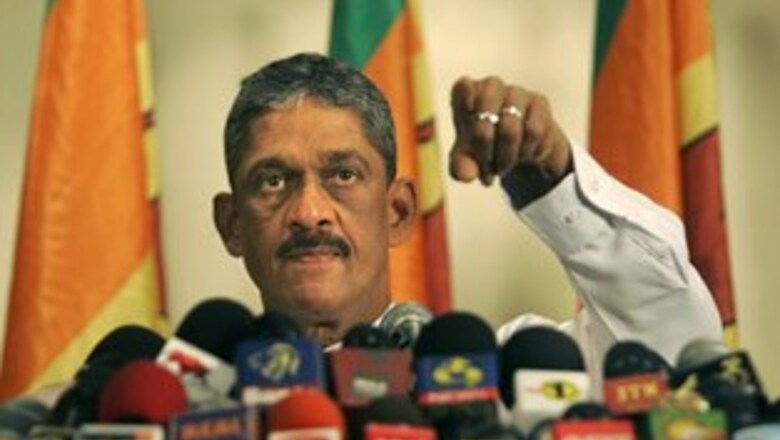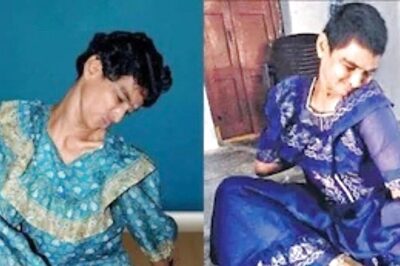
views
Colombo: Sri Lanka's former army chief announced on Sunday he will run for president as head of a coalition of opposition parties, challenging President Mahinda Rajapaksa in an electoral battle that will pit the two war heroes against each other.
General Sarath Fonseka's forces swept through the jungles of northern Sri Lanka and crushed the Tamil rebels in May. But Fonseka resigned two weeks ago, accusing the government of sidelining him after the end of the quarter-century civil war.
In his first news conference as a politician, Fonseka accused the president of being a dictator for failing to return the country to normalcy at the end of the war. He alleged the government was curtailing media freedom and dragging its feet on resettling war refugees--echoing complaints from international rights groups.
"We have done away with the terrorists. But now you can't leave the country in the hands of a tin-pot dictator," he said.
But there have also been questions about Fonseka's conduct during the war. Earlier this month, US officials had tried to question Fonseka, a US green card holder, over alleged human rights abuses by his forces during the war.
A State Department report said military attacks on civilians and hospitals during the fighting could amount to war crimes.
On Sunday, Fonseka said he never covered up any illegal activity in the army during the war.
The former general has pledged to abolish the powerful executive presidency to return power to parliament in six months, take measures to curb corruption and restore democracy.
Fifteen opposition parties--all with little hope of defeating Rajapaksa on their own--have said they would support Fonseka in the Jan. 26 presidential election.
Rajapaksa, who still has two years left in his six-year term, called early elections to take advantage of his popularity after the military ended the civil war.
Government troops routed the Tamil rebels in May, ending their fight for an independent homeland for the country's minority Tamils. An estimated 80,000 to 100,000 people were killed in the violence.
The government's victory made Rajapaksa and Fonseka heroes among the country's Sinhalese majority.
In a series of recent local elections, Rajapaksa's coalition has won control of all eight provincial assemblies. But he could face a strong challenge from Fonseka.
The elections department announced Friday that the vote will be held January 26.



















Comments
0 comment